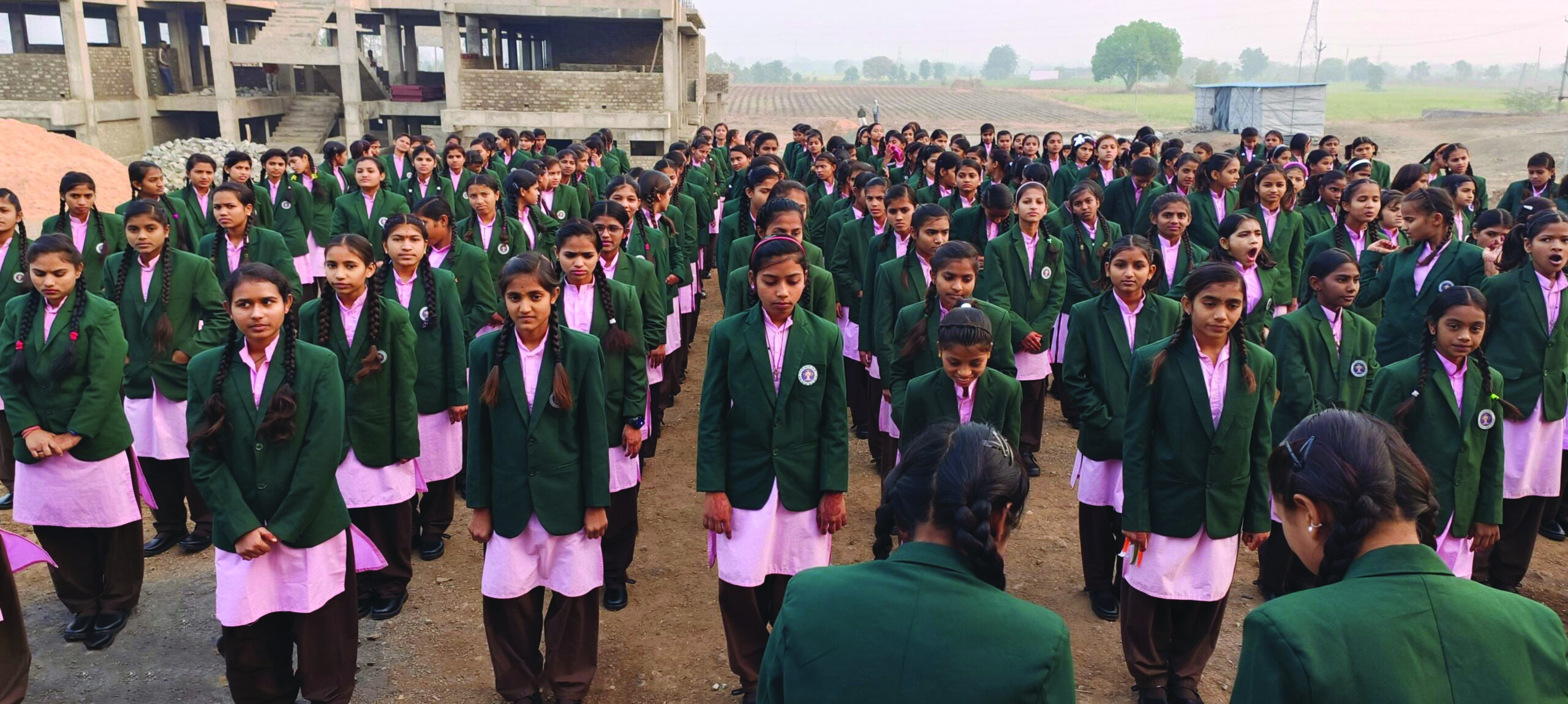Aditi Maheshwari (Bhopal)

GKSP children: gruelling trek
The popular urban perception is that rural SC (scheduled caste) and ST (scheduled tribe) children are content with their backwardness and poor-quality schools. This perception was contradicted on February 26 when a delegation of 40 class VII-VIII girl children of the Government Kanya Shiksha Parisar (GKSP), a CBSE-affiliated school for girls, in Pansemal village, undertook a gruelling 80-km trek to meet the district collector. Their demand: a dedicated school building and hostel.
GKSP is an upgraded Eklavya Model Residential School (EMRS), a scheme launched in 1997-98 by the Union ministry of tribal affairs, to enable India’s forests-dwelling tribal communities which have been bypassed in the post-independence national development effort, to recover lost ground. Currently, there are 690 EMRS countrywide. According to Census 2011, tribal communities constitute 8.6 percent of the total national population. A majority of tribal citizens reside in Madhya Pradesh and Odisha.
Currently, classes at GKSP supervised by the Tribal Welfare Department and Madhya Pradesh Special and Residential Academic Society (MPSARAS) are conducted through a makeshift arrangement with the Model Hr. Sec. School in Pansemal. GKSP, which has 175 primary/elementary children, is restricted to the first floor with ten classrooms and six toilets. Residential accommodation is in a building of the neighbouring English Medium Ashram and comprises ten rooms, each crammed with 17 beds, and six common toilets.
GKSP principal Santosh Pawar says land for a new school building was allotted in October 2022. However, the Public Works Department (PWD) classified the allotted land as “too hilly” and expensive to develop. Subsequently, a new 15-acre plot was allotted in January 2024, but is reportedly stymied by bureaucratic hurdles.
Comments Shakti Singh (Deputy Commissioner, Barwani): “PWD engineers have inspected the site and approval has been granted by the National Tribal Student Education Society (NEST) for construction,” though he can’t give a date for completion. In their present hostel in the English Medium Ashram, the children are allotted Rs.2,000 per year for stationery, Rs.1,500 per month for meals, and Rs.1,000 per month for discretionary spending.
Academics in Madhya Pradesh are stunned by the incident of little girls trekking 80 km to demand basic education facilities. But with a muscular BJP government having been returned to power in Madhya Pradesh following the legislative assembly election of last December, they are reluctant to openly criticise the sluggish administration.
“Universities and colleges at the divisional and district levels should become involved with tribal institutions and schools, and engineering departments of technical universities should collaborate with PWD for faster project completion,” says Dr. Sanjay Sahay, professor of botany at the Sarojini Naidu Govt. Girls College, Bhopal.
Santosh Singh, a teacher at DPS School, Jabalpur, with 32 years of experience, offers a long prescription for waking up the state government to pay greater attention to education of rural and tribal children. Among her suggestions:“Empowering local authorities with decision-making power, community participation and public-private partnerships with NGOs to build schools in challenging environments. Exposure visits are a must; city schools and colleges should visit rural and tribal schools and report back to make authorities more accountable.”
However speaking off the record, most academics are sceptical about any improvement in the plight of the 40 girls who undertook a gruelling 80 km trek to demand better education facilities. “BJP governments are most concerned about improving pilgrimage sites and temple facilities. It’s doubtful if the girl children’s fundamental right to education in a half-decent school will be met in the near future. This is not only a Madhya Pradesh, but a national blindspot,” says an NGO activist, who requested anonymity because “these are dangerous times”.
Nor is this the first time that little children in the state have braved rain and sun to demand better education facilities. Last year in July, 132 children together with the village sarpanch, deputy sarpanch, and villagers from Amarwada village in MP’s Chhindwara district undertook an arduous two-day, 100-km trek to the District Collector’s office to demand teachers and renovated school buildings. Nothing has been heard since of these children’s demand for a better schooling environment. The children of Pansemal village are likely to suffer a similar fate.























